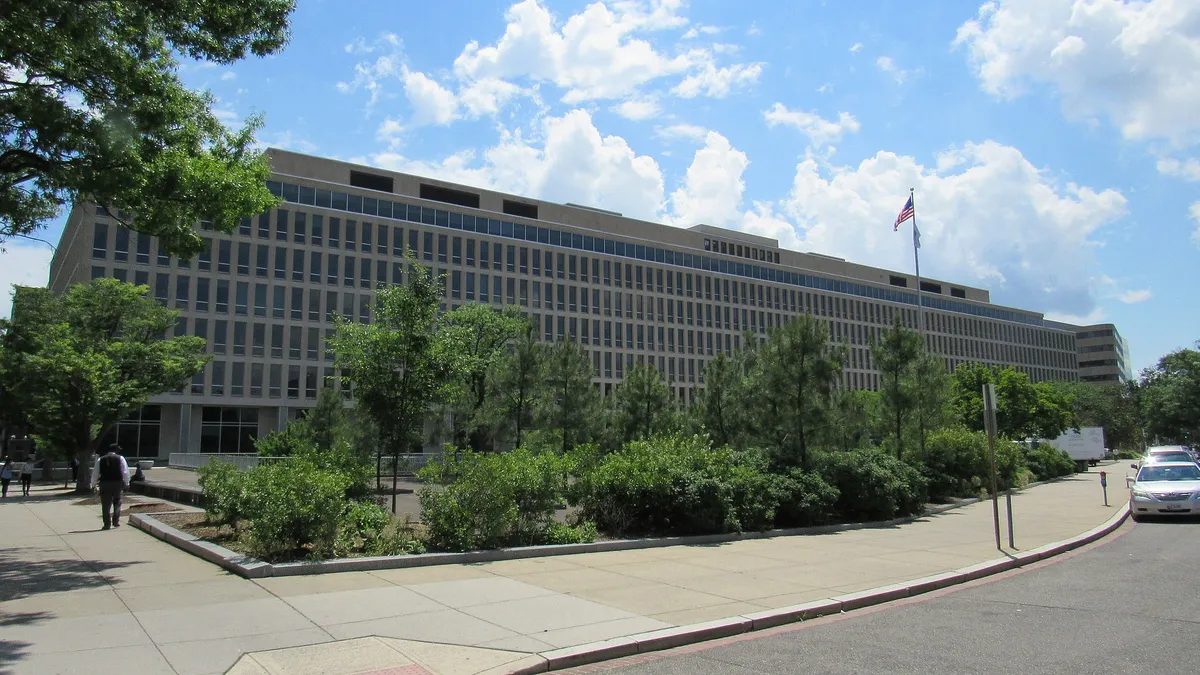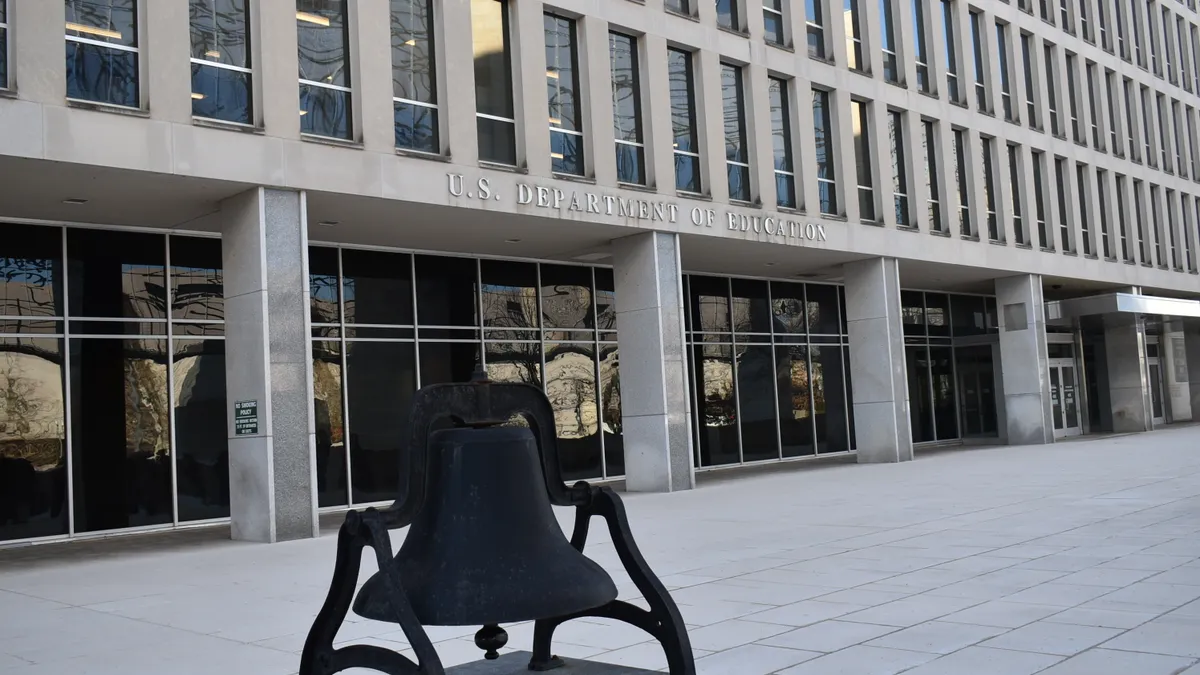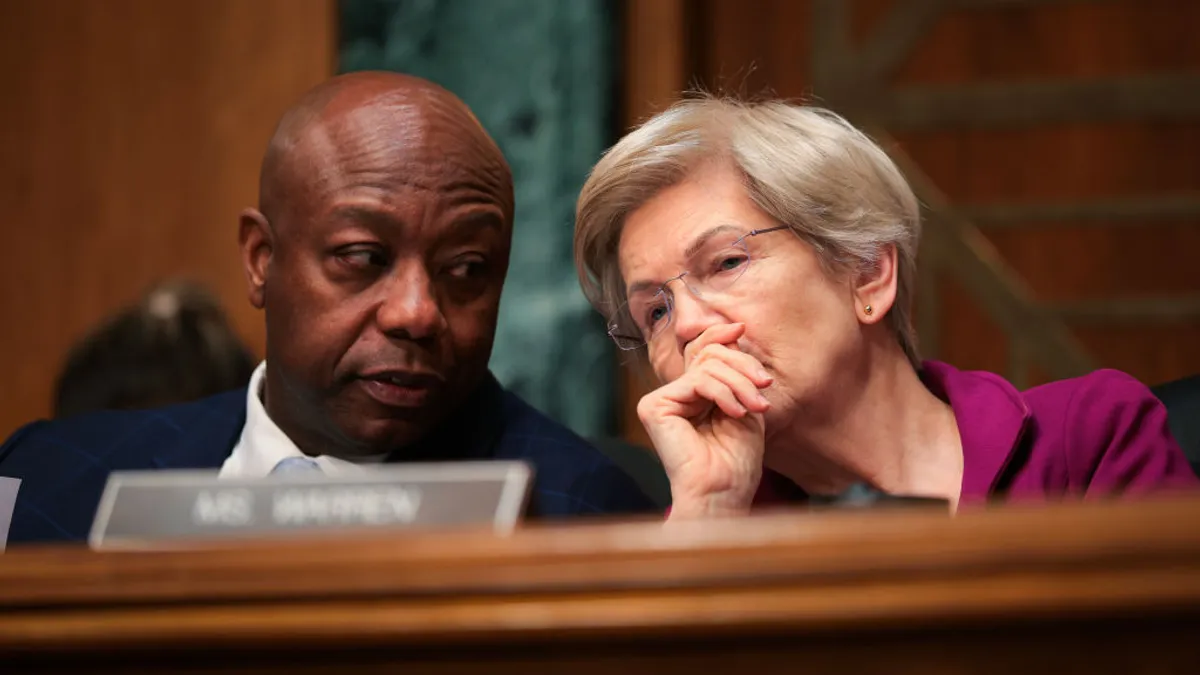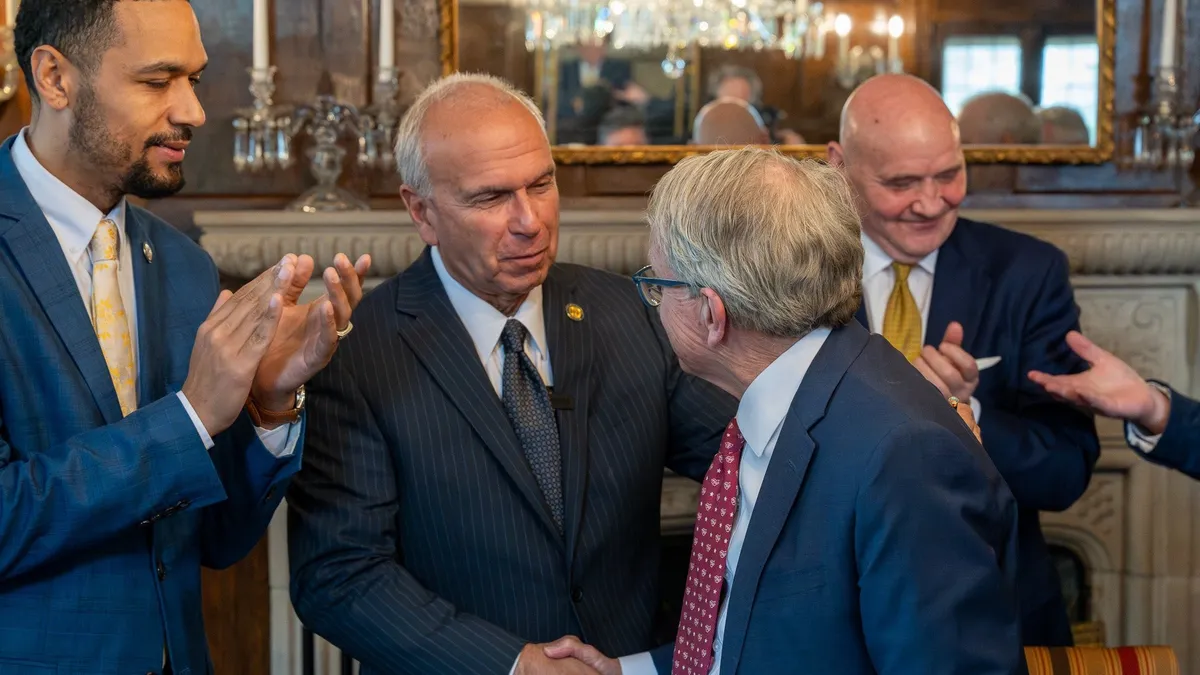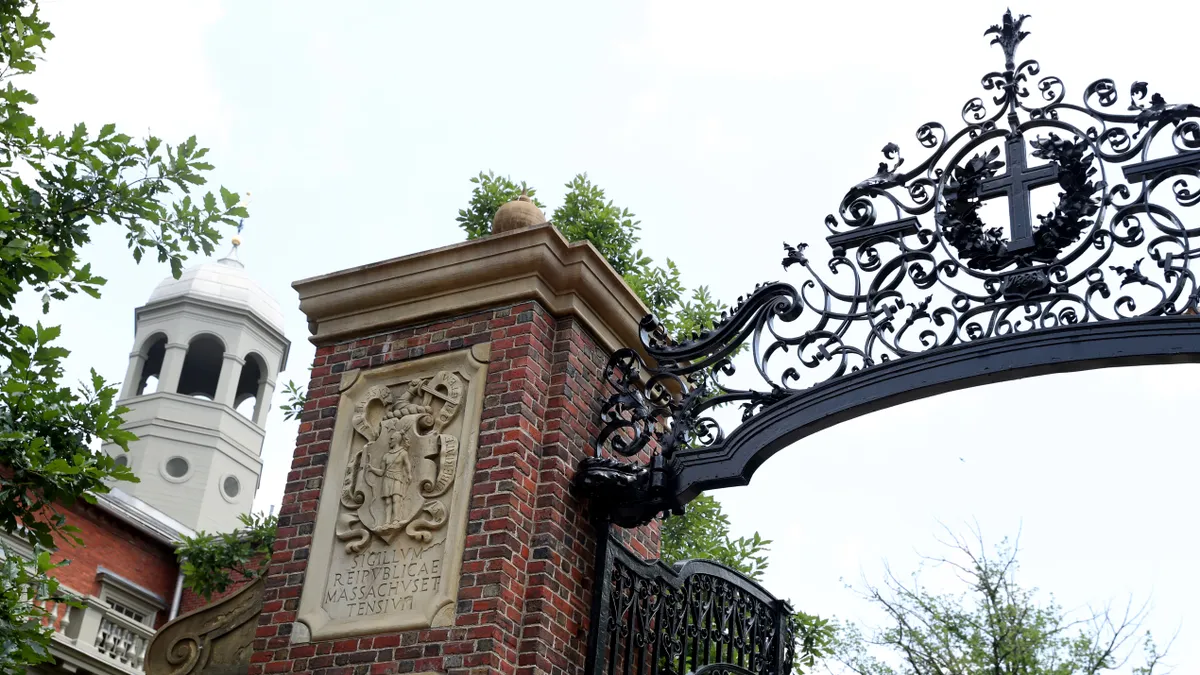Negotiations are scheduled for next week over the gainful employment rule, a regulation intended to make sure graduates of postsecondary career education programs can work and pay back their student debt.
The U.S. Department of Education's latest rule proposal is notable for a new mechanism that would compare college graduates' earnings against those of high school graduates. But the regulation has a much longer history — and disagreement has often centered on which institutions the rule regulates, as well as how it regulates them.
Gainful employment's previous iteration took effect at the end of the Obama administration, only to be unwound in short order by the Trump administration. It drew support from groups that want to hold colleges accountable for student outcomes, but for-profit colleges criticized it because it largely focused on their sector.
Before the Obama-era regulation was repealed, the Department of Education identified over 800 programs that failed its requirements. Because of the specific structure of the regulation, two-thirds of the programs the department analyzed were at for-profit colleges. But what would it have found if the rule didn't apply mostly to programs at for-profits — if it covered every program run by a college, regardless of the institution's tax status?
That's a question a senior policy analyst at the Texas Public Policy Foundation recently tried to answer. Andrew Gillen used earnings and debt data from the Ed Department's College Scorecard to approximate the old gainful employment rule's debt-to-earnings test. In that analysis, 89% of programs failing the test were public or private nonprofit institutions.
Higher Ed Dive spoke with Gillen about his work, why he did it, and what he'd like to see for the gainful employment proposal going forward.
This interview has been edited for brevity and clarity.
HIGHER ED DIVE: Why were you interested in this regulation at this moment in time?
ANDREW GILLEN: Gainful employment was a very unique approach to accountability in higher education.
There were two things I really loved about it. First was that instead of focusing on the whole institution, it focused on the program level. That turns out to be really, really huge because you can have underperforming programs at high-performing institutions.
And conversely, you get the same thing at underperforming institutions. You can have a generally underperforming institution but you could still have a few programs that do really well. The program-level approach to accountability allows you to avoid both of those problems.
The other thing I really, really liked about gainful employment was the fact that it focused on post-graduation earning outcomes.
Earnings after college are a very important metric, and I thought gainful employment did a pretty reasonable job of defining what was an acceptable level of earnings, because they did it relative to how much debt the students needed to take out to get their degrees.
You used publicly available data to estimate how a gainful employment regulation would apply across all of higher ed. A topline finding was that 89% of programs failing were not at for-profit colleges. Why is that important?
Everybody who followed gainful employment in its original iteration at the time knew it was basically selectively targeting for-profits. But when the results came out, people ran the numbers and it turned out that 98% of the failing programs under gainful employment were for-profit programs. Everybody who was following it said, "Yeah, that makes sense. That's who you were targeting with the regulations."
But how that translated into the wider policy community — the people who didn't realize that the for-profit sector is being selectively targeted — was that this indicates that excessive debt was a problem that was almost exclusively found in the for-profit sector. And that's where I think our research comes in really handy. It says, "OK, the 98% figure was an artifact, and it was being driven by the fact you were almost exclusively targeting for-profits. If you apply this test to everybody, that 98% becomes 11%."
Could the Ed Department write regulations extending gainful employment to cover nonprofit and public institutions if it wanted to? The Higher Education Act has a specific provision saying certain types of programs are exempt.
In a sense, that's accurate, because there are two sections that define vocational education. One of them says all proprietary programs, so that would be all of your for-profits, and then there is another section that says nondegree programs. So that was the rationale about why gainful employment was only applied to the programs it was.
But this is like an after-the-fact justification, because there is a whole other section of the Higher Education Act that basically says — and actually mandates — that the Department of Education sets up a quality assurance system. You could basically do gainful employment. You just wouldn't call it gainful employment. You'd call it quality assurance.
You've noted that three of the for-profit colleges that posted the highest number of failing programs under gainful employment ended up closing. Do you think that's good or bad?
I think the story there is that once you told colleges that they were going to be held accountable, when they knew they were going to fail, they started winding those programs down.
That is exactly what we should be hoping happens. We don't want students going into these programs where they leave with excessive debt, without warning ahead of time.
I think that was a great outcome. I would just like to see it also being applied to all the other sectors of higher education.
What did we miss?
For gainful employment, my big takeaway is — and I think I'm kind of unique in this regard — a lot of people on the left loved it because it hurt the for-profits. A lot of people on the right hated it because it selectively targeted [for-profits]. I'm sort of in the middle.
There was a lot of good there. This program-level approach was really good. Taking into account earnings was really good. Yeah, the selective targeting was bad, but that's relatively easily fixed. I think there is a bit more fighting to get there, but I really think that there's a lot of potential.
The other thing I'm curious about is if we do get universally applied accountability, are the for-profits on board with it? That's what they've been saying for a long time. But is that just a way for them to basically say, "We should get rid of this because it's selectively applied?"
If it applied to everybody, would they be on board?



